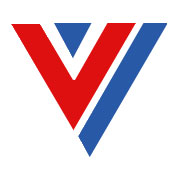中華人民共和國標(biāo)準(zhǔn)化法實(shí)施條例
發(fā) 文 號(hào):國務(wù)院令第53號(hào)發(fā)布
發(fā)布單位:國務(wù)院令第53號(hào)發(fā)布
r examination concerningenvironmental protection;(4) technical requirements and methods for surveying, designing,construction and examination and acceptance in building projects;(5) technical terms, symbols, codes, drafting methods and requirements forconversion and coordination concerning industrial production, projectconstruction and environmental protection;(6) varieties, specifications, quality, grades, examination, packing,storage, transportation and requirements for production technology andmanagement expertise concerning agricultural products (including seeds,seedlings, breeding stock and breeding poultry and those in forestry,animal husbandry and fishery; the same below);(7) technical requirements concerning information, energy, resources, andtransport.Article 3The State develops standardization undertakings in a planned way.Standardization work should be included in the plans for national economicand social development at the various levels.Article 4The State encourages the adoption of international standards and advancedstandards abroad and takes an active part in the formulation ofinternational standards.
【章名】Chapter II Administration of Standardization Work
Article 5The task for those who are in charge of standardization work is:formulating standards, organizing the implementation of standards andexercising supervision over the implementation of standards.Article 6The competent department in charge of standardization under the StateCouncil exercises unified leadership over the standardization workthroughout the country, and it performs the following duties:(1) organizing the implementation of the State's laws, regulations,policies and measures concerning standardization;(2) organizing the formulation of programmes and plans concerningstandardization work in the whole country;(3) organizing the formulation of national standards;(4) providing guidance to the relevant competent departments under theState Council and administrative departments for standardization work inthe people's governments in the provinces, autonomous regions and themunicipalities directly under the Central Government in theirstandardization work, and coordinating work in this field and dealing withproblems arising therein;(5) organizing the implementation of standards;(6) conducting supervision over and inspection on the implementation ofstandards;(7) exercising unified leadership over attestation of product quality inthe whole country;(8) taking overall responsibility for professional contacts with therelevant international standardization organizations.Article 7The relevant competent departments under the State Council are responsiblefor the standardization work in their own departments or trades. Theyshall perform the following duties:(1) implementing the State's laws, regulations, policies and measuresconcerning standardization work and formulating specific procedures fortheir implementation in their departments and trades;(2) formulating programmes and plans concerning standardization work intheir departments and trades;(3) undertaking tasks assigned by the State of drafting state standardsand organizing the formulation of the standards in their respectivetrades;(4) providing guidance to the relevant competent authorities in theprovinces, autonomous regions and municipalities directly under theCentral Government in their standardization work;(5) organizing the implementation of the standards in their departmentsand trades;(6) conducting supervision over and inspection on the implementation ofstandards;(7) taking charge of attestation of product quality in their own trades onthe authorization from the competent department in charge ofstandardization under the State Council.
Article 8The administrative departments for standardization in the people'sgovernments in the provinces, autonomous regions and municipalitiesdirectly under the Central Government exercise unified leadership overstandardization work in their respective administrative regions, and shallperform the following duties:(1) implementing the State's laws, regulations, policies and measuresconcerning standardization work and formulating specific procedures fortheir implementation in their respective administrative regions;(2) formulating local programmes and plans concerning standardizationwork;(3) organizing the formulation of local standards;(4) providing guidance to the relevant administrative authorities in theirown administrative regions in their standardization work, and coordinatingwork in this field and dealing with problems arising therein;(5) organizing the implementation of the standards in their respectiveadministrative regions;(6) conducting supervision over and inspection on the implementation ofthe standards.Article 9The relevant competent administrative authorities in the provinces,autonomous regions and municipalities directly under the CentralGovernment are responsible for the standardization work in their owndepartments and trades in the respective administrative regions, and shallperform the following duties:(1) implementing the laws, regulations, policies and measures concerningstandardization work formulated by the State and their respectivedepartments, trades and administrative regions and formulating specificprocedures for their implementation;(2) formulating programmes and plans concerning standardization work fortheir own departments and trades in the respective administrative regions;(3) undertaking the tasks of drafting local standards assigned by thepeople's governments in the provinces, autonomous regions andmunicipalities directly under the Central Government;(4) organizing the implementation of the standards in their owndepartments and trades in the respective administrative regions;(5) conducting supervision over and inspection on the implementation ofthe standards.Article 10The division of the duties of the administrative departments in charge ofstandardization and the relevant competent administrative authorities inmunicipalities and counties shall be stipulated by the people'sgovernments in the provinces, autonomous regions and municipalitiesdirectly under the Central Government.
【章名】Chapter III The Formulation of Standards
Article 11National standards (including making sample standards) should beformulated for the following technical requirements that need to beunified throughout the country:(1) requirements for standardizing commonly used technical terms;(2) technical requirements for guaranteeing human health and personal andproperty safety;(3) technical requirements for essential raw materials, fuels andprocessed materials;(4) technical requirements for commonly used basic spare parts;(5) commonly used methods of experimentation and examination;(6) technical requirements for commonly used management expertise;(7) important technical requirements in project construction;(8) technical requirements for the other important products that must becontrolled by the State.Article 12In formulating national standards, the administrative department in chargeof standardization under the State Council shall be responsible for makingplans, organizing drafting, examination and approval, numbering andpromulgation. In formulating national standards for project construction,pharmaceuticals, food hygiene, veterinary medicine and environmentalprotection, the competent departments in charge of project construction,public health, agriculture and environmental protection under the StateCouncil shall be responsible for organizing drafting and examination andapproval in their respective departments. The procedures for numbering andpromulgation shall be formulated by the administrative department incharge of standardization under the State Council in conjunction with therelevant competent departments under the State Council.Where there are, in law, provisions different from those above for theformulation of national standards, t

 全國總工會(huì)勞動(dòng)和經(jīng)濟(jì)工作部2024年工…
全國總工會(huì)勞動(dòng)和經(jīng)濟(jì)工作部2024年工… 關(guān)于公布2023年全國“平安農(nóng)機(jī)”示范…
關(guān)于公布2023年全國“平安農(nóng)機(jī)”示范… 全國重點(diǎn)工業(yè)產(chǎn)品質(zhì)量安全監(jiān)管目錄(…
全國重點(diǎn)工業(yè)產(chǎn)品質(zhì)量安全監(jiān)管目錄(… 關(guān)于加強(qiáng)重點(diǎn)兒童和學(xué)生用品安全管理…
關(guān)于加強(qiáng)重點(diǎn)兒童和學(xué)生用品安全管理… 工業(yè)領(lǐng)域數(shù)據(jù)安全標(biāo)準(zhǔn)體系建設(shè)指南(…
工業(yè)領(lǐng)域數(shù)據(jù)安全標(biāo)準(zhǔn)體系建設(shè)指南(… 體育行業(yè)安全生產(chǎn)重大事故隱患判定標(biāo)…
體育行業(yè)安全生產(chǎn)重大事故隱患判定標(biāo)… 實(shí)施強(qiáng)制管理的計(jì)量器具目錄
實(shí)施強(qiáng)制管理的計(jì)量器具目錄 旅游安全管理辦法
旅游安全管理辦法 工貿(mào)企業(yè)有限空間作業(yè)安全管理與監(jiān)督…
工貿(mào)企業(yè)有限空間作業(yè)安全管理與監(jiān)督… 工作場所職業(yè)衛(wèi)生監(jiān)督管理規(guī)定【廢止】
工作場所職業(yè)衛(wèi)生監(jiān)督管理規(guī)定【廢止】 生產(chǎn)現(xiàn)場安全通道規(guī)定
生產(chǎn)現(xiàn)場安全通道規(guī)定 突發(fā)環(huán)境事件應(yīng)急預(yù)案管理暫行辦法
突發(fā)環(huán)境事件應(yīng)急預(yù)案管理暫行辦法 中華人民共和國塵肺病防治條例
中華人民共和國塵肺病防治條例 職業(yè)衛(wèi)生技術(shù)服務(wù)機(jī)構(gòu)監(jiān)督管理暫行辦…
職業(yè)衛(wèi)生技術(shù)服務(wù)機(jī)構(gòu)監(jiān)督管理暫行辦… 用人單位職業(yè)健康監(jiān)護(hù)監(jiān)督管理辦法
用人單位職業(yè)健康監(jiān)護(hù)監(jiān)督管理辦法 食品生產(chǎn)企業(yè)安全生產(chǎn)監(jiān)督管理暫行規(guī)…
食品生產(chǎn)企業(yè)安全生產(chǎn)監(jiān)督管理暫行規(guī)…